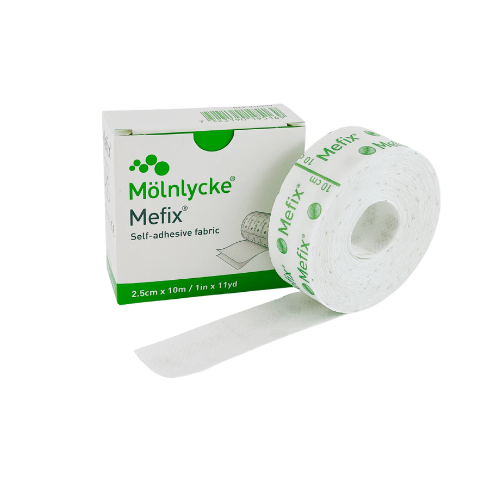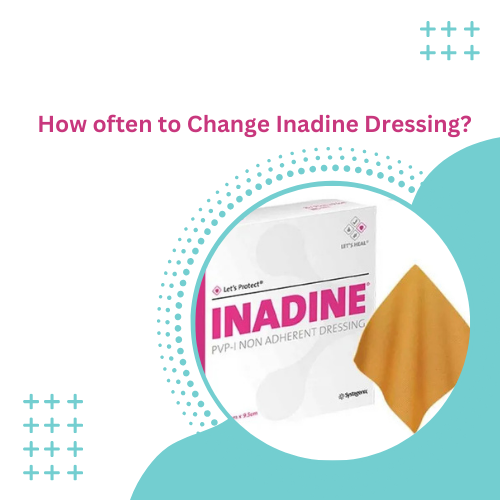How frequently should you really apply moisturizer? The answer isn’t one-size-fits-all; it depends on various factors, including your skin type, climate, and daily activities.
The Importance of Moisturizer: Why You Should Never Skip This Step
In the world of skincare, few products are as universally recommended as moisturizers. Even though adding a moisturizer to your routine is a simple step, its benefits are significant.
1. Hydration is Key
Our skin continuously loses moisture from environmental factors, aging, and daily activities. A good moisturizer replenishes this lost hydration, keeping your skin plump and soft.
2. Protects the Skin Barrier
Moisturizers strengthen this barrier, preventing moisture loss and keeping harmful substances at bay. Ingredients like ceramides and fatty acids in moisturizers help reinforce this protective layer, ensuring that your skin remains resilient and healthy.
3. Enhances Skin Texture
Consistent hydration helps smooth rough patches, minimize flakiness, and promote a more even skin tone. Over time, this can lead to a visibly softer, smoother complexion, enhancing your overall appearance.
4. Balances Oil Production
When your skin is dehydrated, it tends to produce more oil as a compensation, which can lead to breakouts and other problems. Using a lightweight, oil-free moisturizer can help maintain the right moisture levels, preventing excess oil production while keeping your skin properly hydrated.
5. Aids in Anti-Aging
Well-hydrated skin is stronger and less likely to develop wrinkles and fine lines. Many moisturizers include antioxidants and anti-aging ingredients that protect your skin from damage and encourage new cell growth. Adding a good moisturizer to your routine can help you maintain a youthful glow for years.
6. Soothes and Calms Irritation
For those with sensitive or reactive skin, a soothing moisturizer can make a world of difference. Ingredients like aloe vera, chamomile, and hyaluronic acid can calm irritation and redness, providing much-needed relief. Regularly moisturizing can help maintain a balanced skin condition and reduce flare-ups.
7. Boosts the Effectiveness of Other Products
Applying a moisturizer can boost the effectiveness of the other products in your skincare routine. When your skin is properly hydrated, it absorbs serums, treatments, and active ingredients more effectively. This means that using a quality moisturizer can enhance the overall benefits of your entire skincare regimen.
8. Adapts to Your Skin’s Needs
Moisturizers come in many formulations, allowing you to tailor your skincare routine to your individual skin type and needs. Whether you prefer a lightweight gel for oily skin or a thick cream for dry skin, you can find a moisturizer that fits your requirements perfectly. This adaptability makes it easy to find a product that works for your specific needs.
Incorporating a moisturizer into your daily skincare routine is one of the simplest yet most effective ways to maintain healthy skin. Whether you’re combating dryness, fighting signs of aging, or simply looking to enhance your natural glow, a good moisturizer is your best ally. Remember, hydrated skin is happy skin, so make sure you never skip this vital step!
Why Moisturizing Matters
Moisturizers are essential for keeping your skin healthy. They help to:
1. Lock in Hydration: Moisturizers create a barrier that retains moisture, keeping your skin hydrated and looking full.
2. Protect Against Environmental Stressors: A quality moisturizer helps safeguard your skin from pollution, UV rays, and other harmful elements.
3. Improve Skin Texture: Regular moisturizing can lead to smoother, softer skin and help reduce the appearance of fine lines.
4. Balance Oil Production: For those with oily skin, moisturizing can help regulate oil levels and lower the chances of breakouts.
How Often Should You Moisturize?
1. Skin Type Matters
– Dry Skin: Look for a richer cream that contains ingredients like hyaluronic acid, glycerin, or ceramides.
– Oily Skin: Even oily skin needs moisture! Once daily, preferably in the morning, may be sufficient.
– Combination Skin: For combination skin, you may need to adjust your routine.
– Sensitive Skin: If your skin is easily irritated, opt for a gentle, fragrance-free moisturizer.
2. Consider the Climate
Environmental factors can greatly affect the moisture levels of your skin.
– Dry or Cold Weather: In winter or arid climates, your skin may need extra hydration.
– Hot or Humid Weather: In humid conditions, you might find that a lighter moisturizer is sufficient. Once daily or even every other day may work well.
3. Lifestyle Factors
– Daily Activities: If you’re exposed to the sun, wind, or air conditioning, you might need to moisturize more often. After swimming or intense workouts, reapplying moisturizer can also help restore hydration.
Additional Tips for Effective Moisturizing
– Apply on Damp Skin: To maximize hydration, apply your moisturizer while your skin is still slightly damp after cleansing. This helps to seal in moisture.
– Listen to Your Skin: If it feels tight, dry, or flaky, it may be a sign to increase your moisturizing frequency.
How Often Should You Use a Face Moisturizer?
When it comes to skincare, moisturizing is often highlighted as a non-negotiable step. But how often should you really be using a face moisturizer? The answer isn’t straightforward, as it depends on various factors including your skin type, climate, and lifestyle. Let’s explore how frequently you should apply moisturizer for optimal skin health.
Understanding Your Skin Type
The first step in determining how often to moisturize is understanding your skin type. Here’s a breakdown:
1. Dry Skin
If you have dry or dehydrated skin, it’s important to moisturize twice a day—once in the morning and once at night. Look for rich creams or lotions containing hydrating ingredients like hyaluronic acid, glycerin, and ceramides to help lock in moisture and restore your skin’s natural barrier.
2. Oily Skin
People with oily skin often shy away from moisturizers, fearing it will exacerbate shine and breakouts. However, even oily skin needs hydration. Aim to use a lightweight, oil-free moisturizer once a day, preferably in the morning. This will help balance oil production without clogging pores. If your skin feels tight or looks dull, consider adding a second application in the evening.
3. Combination Skin
For combination skin, where some areas are oily while others are dry, your approach can be a bit more flexible. You might benefit from a lightweight moisturizer in the morning and a slightly richer one at night. Once or twice a day should suffice, depending on how your skin feels.
4. Sensitive Skin
Sensitive skin requires extra care. A gentle, fragrance-free moisturizer can provide much-needed hydration while soothing irritation. For sensitive skin, it’s generally best to moisturize twice a day, but pay attention to how your skin responds. If you notice irritation, you might need to adjust the frequency.
Factors Influencing Moisturizing Frequency
1. Climate
Your environment plays a significant role in your skin’s hydration needs.
– Dry or Cold Weather: In winter or arid climates, your skin may lose moisture more quickly. Consider increasing your moisturizing routine to two or even three times a day if your skin feels particularly dry.
– Hot or Humid Weather: In contrast, during hot, humid months, your skin might not need as much moisture. A lighter moisturizer once a day can be enough, as your skin may retain moisture better in these conditions.
2. Daily Activities
If your lifestyle includes prolonged sun exposure, swimming, or intense workouts, your skin might require more frequent moisturizing. For example, if you’ve been in the pool or sweating heavily, reapplying moisturizer afterward can help restore hydration.
3. Skincare Routine
Consider the other products you’re using. If you’re incorporating active ingredients like retinoids or exfoliants, these can be drying. Pairing them with a good moisturizer—ideally applied after these products—can prevent dryness and irritation.
Tips for Effective Moisturizing
– Apply on Damp Skin: For best results, apply your moisturizer while your skin is still slightly damp after cleansing. This helps to lock in moisture more effectively.
– Choose the Right Product: Select a moisturizer that suits your skin type and concerns. Experiment with different formulations to find the one that feels best for you.
– Listen to Your Skin: Pay attention to how your skin reacts. If it feels tight, dry, or flaky, it may be a sign to increase your moisturizing frequency.
Finding the right frequency for moisturizing your face is crucial for maintaining healthy skin. By considering your skin type, climate, and lifestyle, you can determine the best routine for you. Whether it’s once a day or multiple times, the key is consistency—make moisturizing a regular part of your skincare regimen, and your skin will thank you for it!
Moisturizers for Different Skin Types: Finding the Perfect Match
Choosing the right moisturizer is essential for maintaining healthy skin, but with so many options available, it can be overwhelming. Different skin types have unique needs, and using the wrong product can lead to issues like breakouts, dryness, or irritation. Let’s break down the best types of moisturizers for each skin type to help you find your perfect match.
1. Dry Skin
Best Ingredients:
– Hyaluronic Acid: Attracts and retains moisture.
– Glycerin: Draws moisture to the skin.
– Ceramides: Help restore the skin barrier.
– Natural Oils: Such as jojoba oil or almond oil for added nourishment.
Recommended Products:
Look for rich creams or ointments that provide deep hydration. Options labeled as “intensive” or “nourishing” are typically good choices.
Examples:
– CeraVe Moisturizing Cream: Contains ceramides and hyaluronic acid for long-lasting hydration.
– Aquaphor Healing Ointment: Great for intense dryness, creating a protective barrier.
2. Oily Skin
Best Ingredients:
– Oil-Free Formulas: Prevent clogging pores.
– Non-comedogenic Ingredients: Specifically designed not to cause breakouts.
– Lightweight Gels: Offer hydration without heaviness.
– Salicylic Acid: Helps control excess oil.
Recommended Products:
Opt for lightweight, gel-based moisturizers that hydrate without adding extra shine.
Examples:
– Neutrogena Hydro Boost Water Gel: A lightweight gel that delivers hydration without oils.
– Clinique Dramatically Different Hydrating Jelly: Provides hydration with a refreshing gel texture.
3. Combination Skin
Best Ingredients:
– Balancing Formulas: Hydrate dry areas while controlling oil in others.
– Lightweight Creams: Provide moisture without feeling heavy.
– Aloe Vera: Soothing and hydrating without being greasy.
Recommended Products:
A moisturizer with a balanced formulation that caters to both dry and oily areas is ideal.
Examples:
– Philosophy Renewed Hope in a Jar: A lightweight cream that hydrates without feeling heavy.
– La Roche-Posay Toleriane Double Repair Face Moisturizer: Provides long-lasting hydration and suits combination skin.
4. Sensitive Skin
Best Ingredients:
– Fragrance-Free: Minimizes the risk of irritation.
– Soothing Agents: Such as chamomile, aloe vera, or calendula.
– Gentle Formulas: Avoid harsh chemicals and alcohol.
Recommended Products:
Choose moisturizers designed specifically for sensitive skin, focusing on calming and hydrating properties.
Examples:
– Cetaphil Daily Hydrating Lotion: Lightweight and soothing, perfect for sensitive skin.
– Aveeno Ultra-Calming Nourishing Night Cream: Formulated with calming feverfew to soothe irritated skin.
5. Normal Skin
Best Ingredients:
– Antioxidants: To protect against environmental damage.
– Lightweight Creams or Lotions: To maintain hydration without overwhelming the skin.
Recommended Products:
Normal skin can often handle a variety of moisturizers, so look for balanced options.
Examples:
– Olay Regenerist Micro-Sculpting Cream: Hydrating and anti-aging benefits.
– Neutrogena Oil-Free Moisture: A classic choice for daily hydration.
Conclusion
Finding the right moisturizer for your skin type is crucial for achieving and maintaining healthy skin. By selecting products formulated for your specific needs, you can enhance hydration, improve texture, and address any skin concerns you may have. Remember, everyone’s skin is unique, so it may take some experimentation to find your ideal moisturizer. With the right match, you’ll be well on your way to glowing, healthy skin!
Moisturizing is an essential part of skincare that should be tailored to your individual needs. By considering your skin type, environmental factors, and lifestyle, you can determine the best moisturizing routine for you. Whether it’s once a day or multiple times, keeping your skin hydrated will lead to a healthier, more radiant complexion. Remember, the key is consistency—so find a routine that works for you and stick with it!




